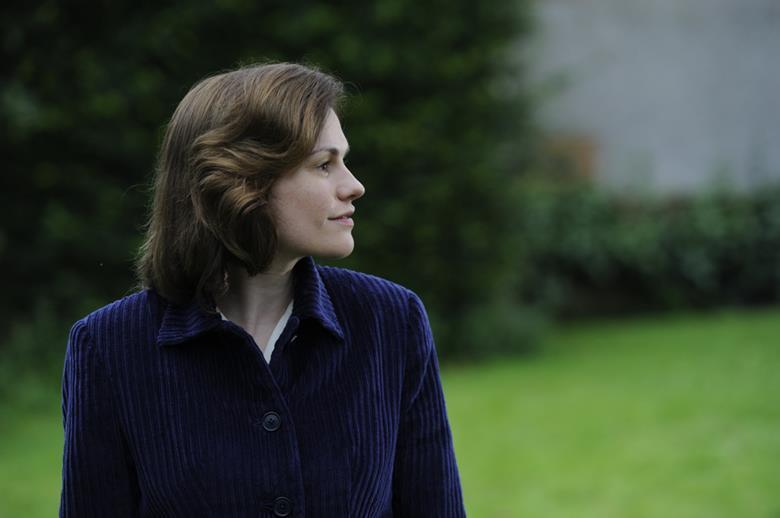Life isn’t easy for Lydia Weekes (Holliday Granger). She spends her time working a thankless job in a small textile mill in a small post-war Scottish town, or caring for her adorably precocious son, Charlie (Gregor Selkirk). But as an Englishwoman, and one whose local-boy husband Robert (Emun Elliot) has abandoned her for another girl, she’s something of an outcast. Facing eviction and poverty, she befriends the local doctor (Anna Paquin) and a forbidden romance begins to blossom.
Tell it to the Bees is based on the 2009 novel by Fiona Shaw. Set in the twitchy-curtained days of 1950s rural Scotland, the film touches on a myriad of social issues, most prominently the difficulties and persecution of gay women in a constrictive and unflinching society. It also touches on racism, the place of women in society, domestic abuse, spousal rape, backstreet abortions and child custody battles. However, to say the film touches on these issues is possibly an optimistic euphemism. More realistically, it pays lip service to them (often with the subtlety of a sledgehammer) in a whistle-stop tour of talking points strewn around the main story.
It’s a well-acted film, for the most part, with Paquin and Granger doing their utmost to embody the personalities of these women. It’s unfortunate that beyond their romance, they’re not given that much to work with on the page. Whilst the pair’s chemistry and their vastly differing mannerisms are one of the better aspects of the film, we barely learn anything about them as people. This unfortunately holds true for the rest of the cast as well. In fact, many of the film’s problems arise from issues that stem from the script. Every character is paper-thin, and we learn little or nothing about them throughout the course of the film. The audience has to glean what they can from the actor performances and the precious little else they are given in the story. Everyone is a one-note facet who gets a sentence or two to explain their entire character.
This is most obvious in the characters of Robert, his sister Pam (Kate Dickie), and her daughter Annie (Lauren Lyle). With Robert, there’s a throwaway line about “the war having changed him” but nothing that makes sense of why Lydia or anyone else would care for this walking embodiment of every aspect of toxic masculinity you could commit to the screen. Pam, on the other hand, is given almost no character beyond being inexplicably unkind until the story requires her to suddenly be more sympathetic, whereas Annie is sweetness and light, and not only fine with same-sex relationships, but also mixed-race ones, despite the bigotry of her family and upbringing.
The real problem here is that the film doesn’t know what viewpoint it is supposed to be from. The story is opened and closed through short narration from adult Charlie (a vocal cameo from Billy Boyd). But outside these moments of bookended narration, the story is resolutely not his. Nor is it consistently told from his point of view, despite so much of the film being about him overhearing or seeing things he shouldn’t be party to. From time to time he jots down a thought in a journal, but these little quaint observations on bee-life tend towards the heavy-handed and are laughably on the nose.
The result is a very pretty film with some good performances, but one that feels empty and soulless. As much as it’s possible to empathise with the characters and enjoy a sweet romance between two people, there’s a definite sense that half the character development is on a cutting-room floor somewhere – or was never there to begin with.
